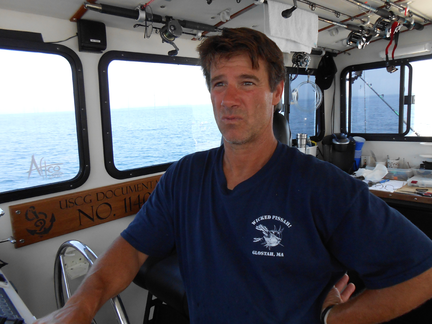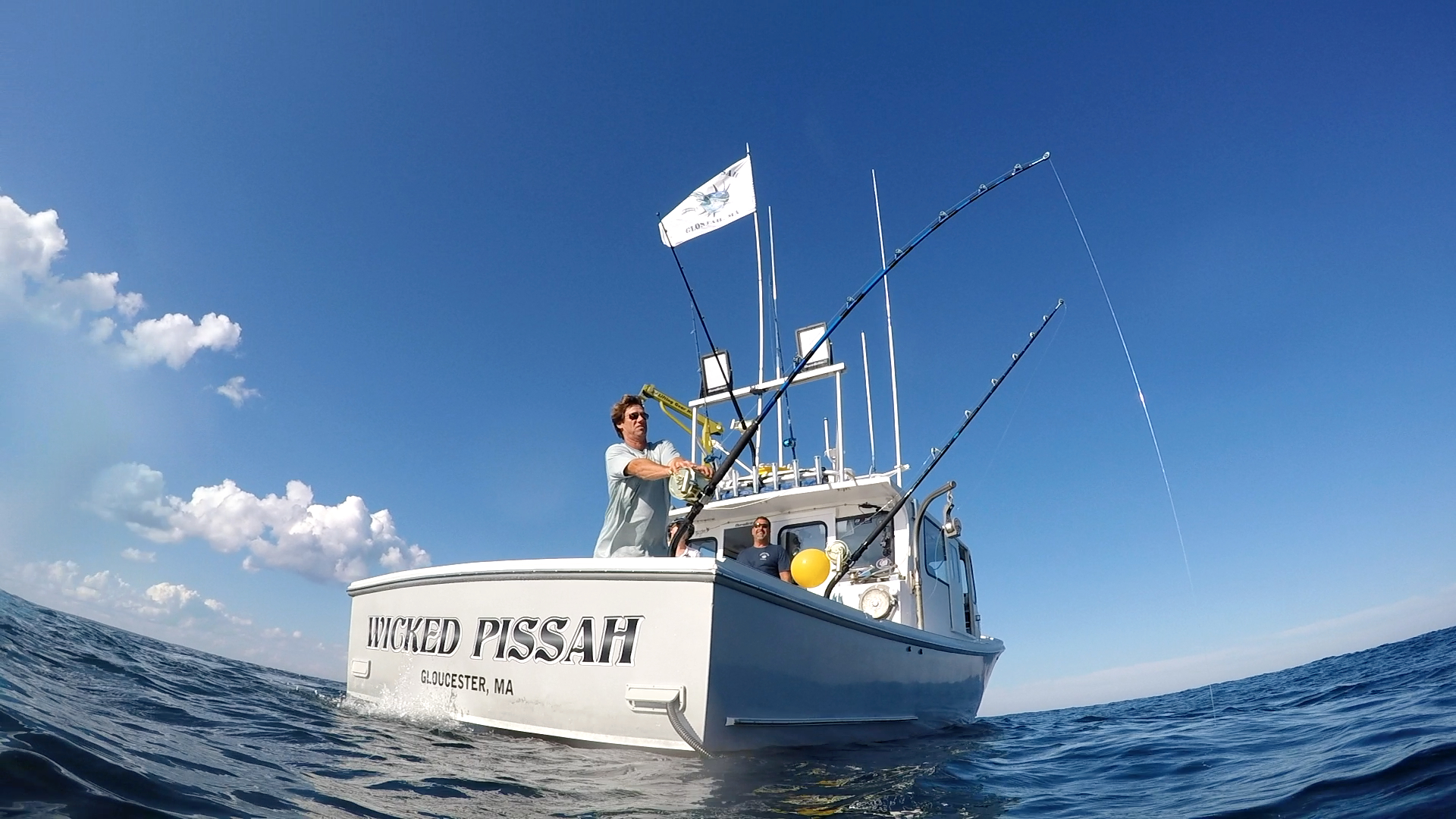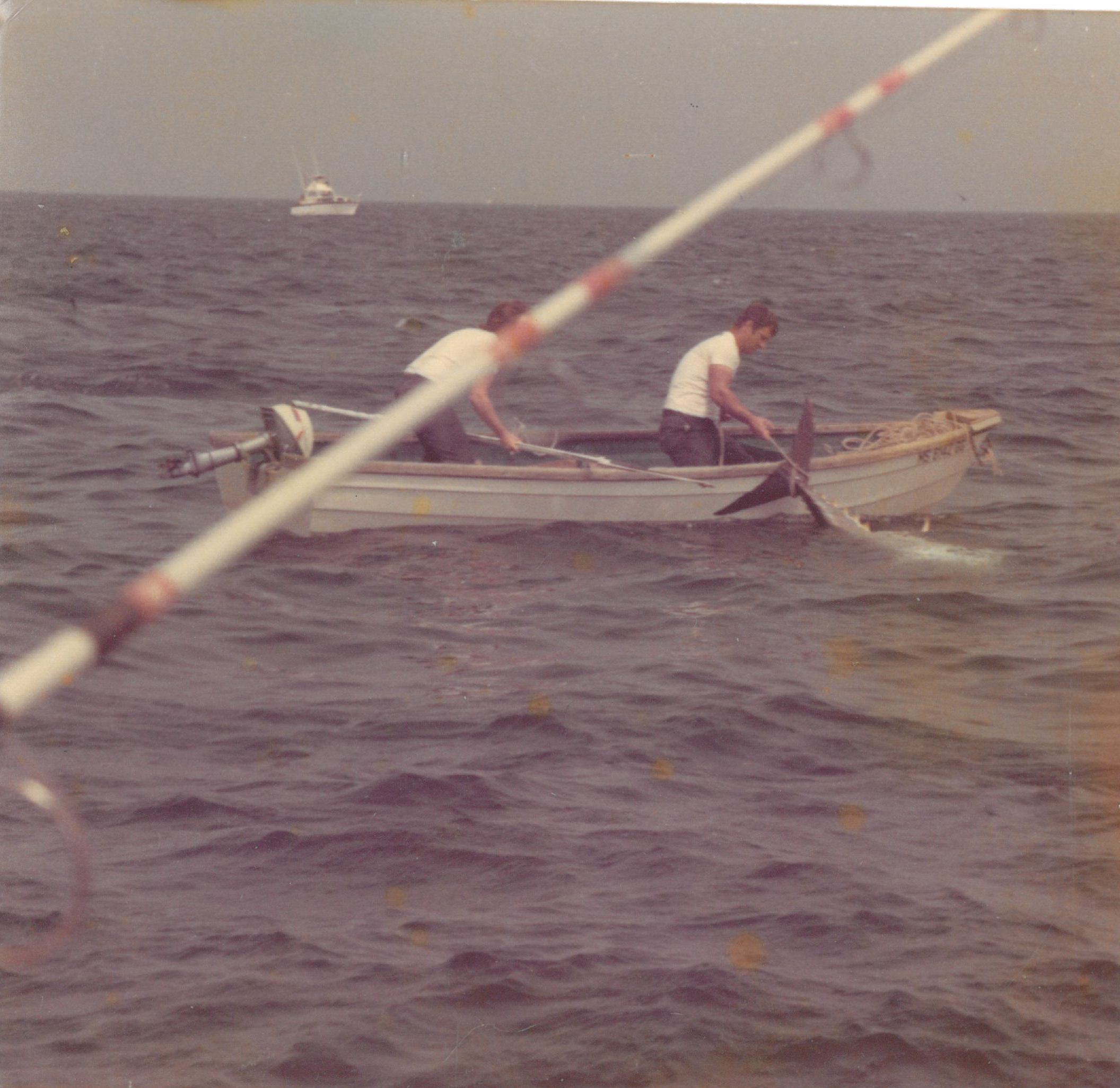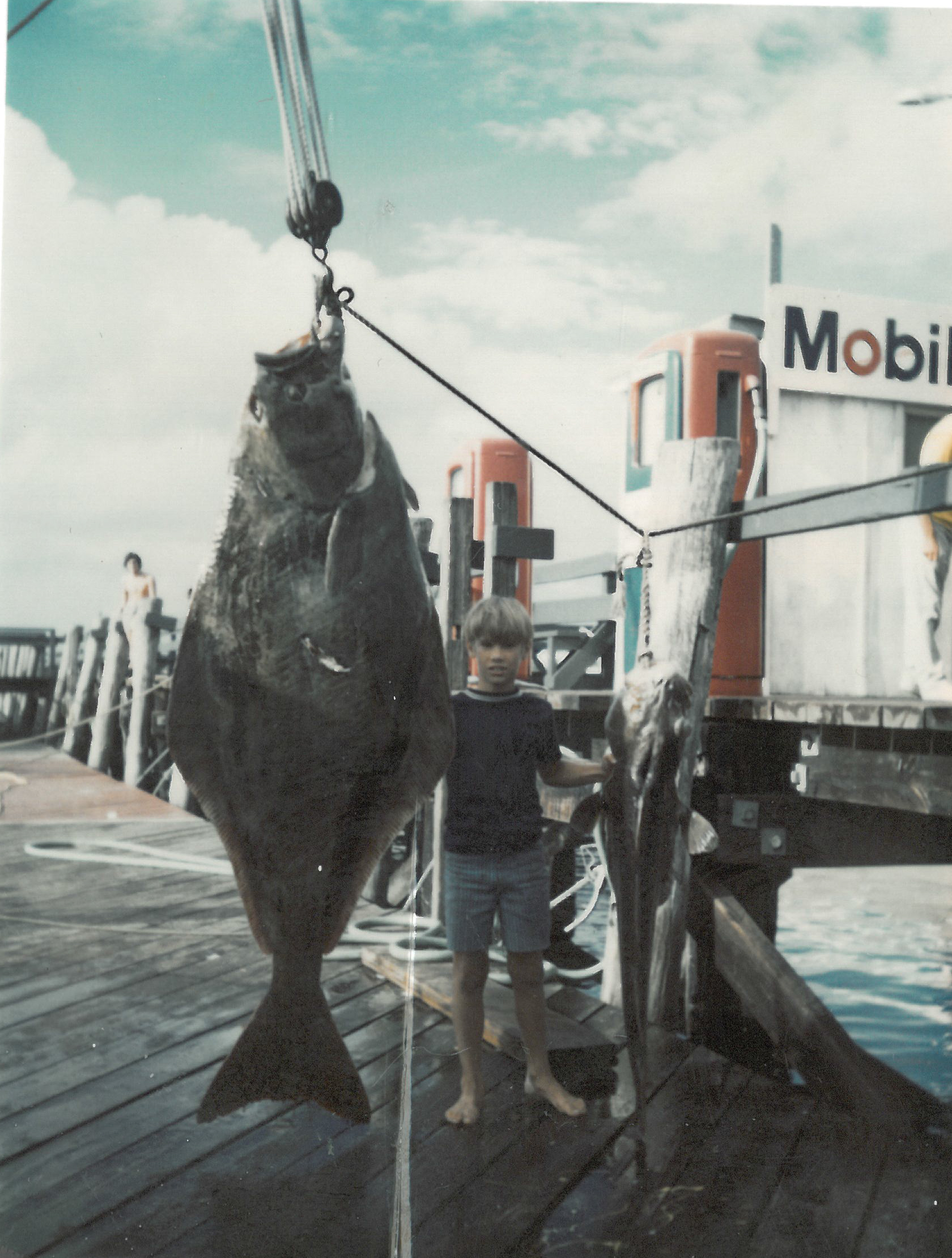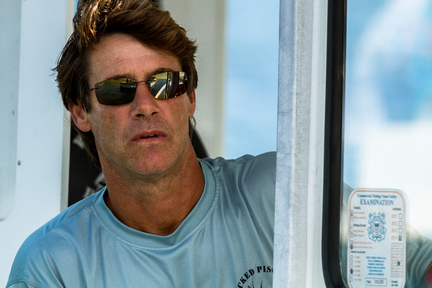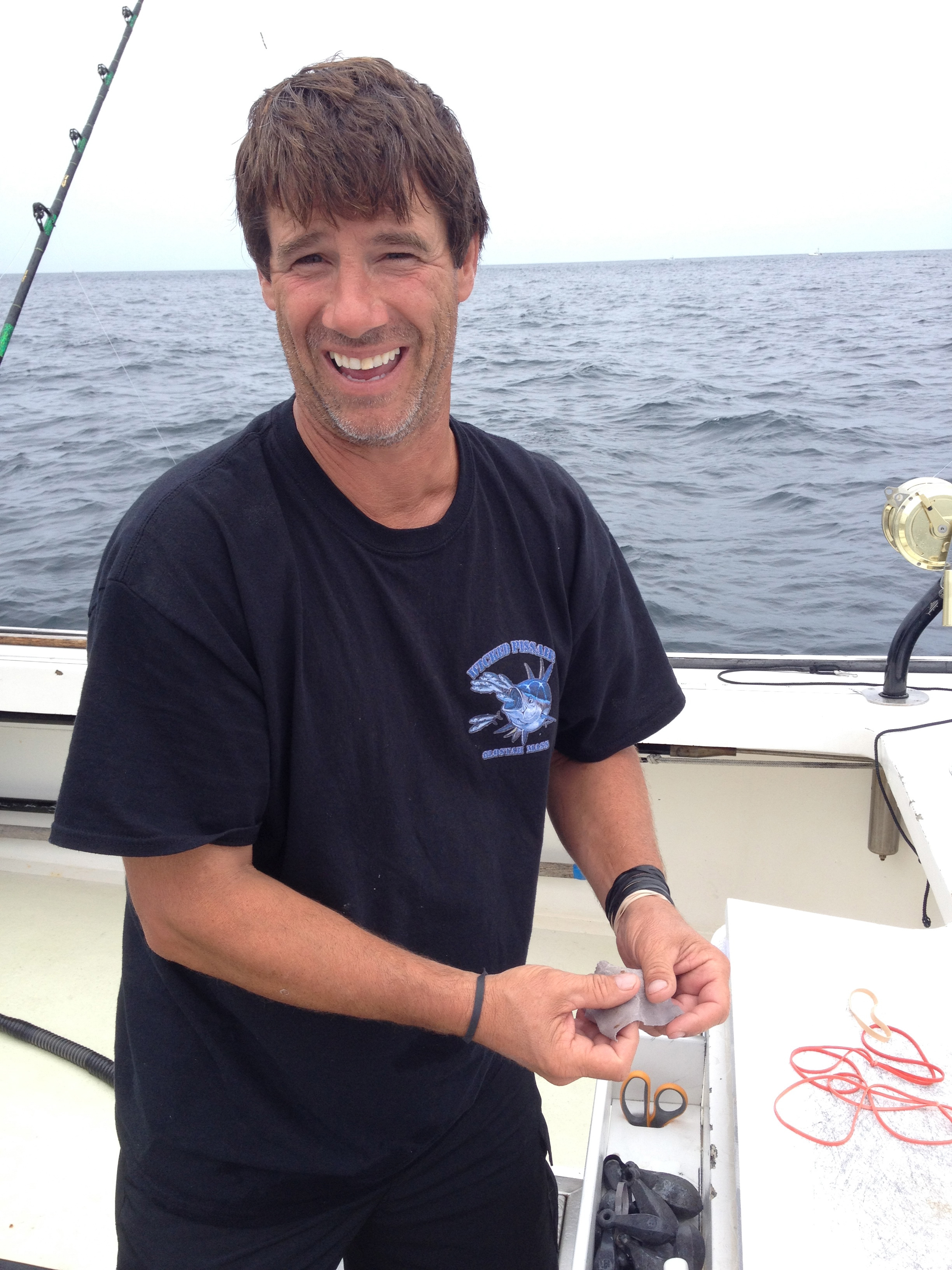The Wicked Fish Of The East
The following interview appears in the May issue of California Sportsman
By Chris Cocoles
Paul Hebert sounds just like you’d expect a Gloucester, Mass., fisherman would – as if he stepped onto the set of The Perfect Storm with the straight-outta-Fenway ‘Pahk’ New England-style accent.
So is it any surprise one of the tuna anglers from the National Geographic Channel’s show Wicked Tuna would pilot a boat he named the Wicked Pissah?
Commercial fishing for giant bluefin tuna is the only life Hebert’s known as a third-generation Gloucester fisherman. And he, like his fellow fierce competitors, do their jobs the old-fashioned way – not using commercial nets but with rods and reels.
And it’s not simply the kind of fishing where wetting your line means tuna will be pushing each other out of the way to bite your bait.
“I know people who have been going for five years and never ever caught one,” Hebert says. “I know ones who have lost their house and their families – everything they own.”
“Doing it for a living, that’s why all the guys have to live out there. We never used to live out on the water. We went out every day but we never went out there for a week at a time. You have to now because everything is so expensive.”
“If you don’t catch a lot of tuna, you’re not going to get by in the winter; that’s why we’re so competitive with each other. We fight, we lie to each other because we know what’s coming: a long-ass winter,” Hebert adds with a laugh.
Hebert and two other Wicked Tuna skippers, Dave Marciano of the Hard Merchandise and Dave Carraro of the FV-Tuna
.com, will be in San Diego next month to participate in Tuna Wars, a fishing contest that’s part of the Friends Of Rollo organization, which hosts fishing-related events for kids.
We had a rather entertaining chat with Hebert, who shared some of his favorite fish tales.
Chris Cocoles I’m sure this is the case for lots of residents of Gloucester, but is fishing simply in your family’s DNA?
Paul Hebert Oh, yeah. My grandfather did it and my father did it; my five older brothers did it, and now I’m doing it. I’m literally a third-generation tuna fisherman. My grandfather did it for a living and he only got 10 cents a pound. My father used to make good money at 25 cents a pound. And this just wasn’t for a couple of years. This was for a lot of years – a decade or so. And then finally in the late 1970s and early ’80s, which was when it jumped up to $1 a pound. We thought we were going to get rich when it went up to a dollar. You gotta remember that back then, you could buy a house for $15,000; everything’s relative.
CC This is a difficult industry where if you don’t produce, tough luck. How much of a struggle was it for your grandfather and dad?
PH Back in the day, when my grandfather and then my father did it, they used to do pretty good with it. My father would catch 80 to 100 tuna a year in the early ’70s. And nobody ever used to do it because no one knew. Everyone used to troll for them and my dad was trolling one day on a charter, and the tuna wouldn’t touch it even though they were jumping all over and wouldn’t touch a thing. So at the end of the day my dad was cutting off the mackerel and the tunas were coming right behind boat and grabbing the mackerel. They used to (fish with) these rods and reels with big shackles and Dacron cable leaders. So he put a hook on and threw a mackerel on, and that’s how chumming started.
CC It’s eye-opening how much harder it’s gotten to catch fish than it was before, and perhaps in other sectors in the workforce it’s become easier to succeed. And more people are out there trying to catch the same fish you are.
PH That’s exactly right. And it’s not so much the people around here; it’s the people overseas who are doing it as well. That’s what affects the price. Years ago when we used to do it and get $1 a pound or 50 cents a pound, nobody in Australia or Mexico or places like that – nobody caught tuna and shipped them to Japan. My father used to catch the tunas and got 15 cents a pound, but he found a guy in Framingham (Mass.) to pay 25 cents a pound for fertilizer; the guy had a farm. I have a newspaper clipping of my dad bringing tuna in his pickup truck to Framingham to sell them. When I tell people these stories they say, “OK?” But I have the pictures to prove it [laughs].
CC What was your life like growing up the son and grandson of Gloucester fishermen?
PH Gloucester is a beautiful place. I had the best childhood a kid could ever have. I’m the youngest of six boys, so I was always protected. The only ones who used to beat me up were my brothers. And all we did was work and go fishing. That’s all I knew. I was taught carpentry and fishing. It was like a little kid growing up on a farm is the only way I can explain it. It was normal for me catching giant tuna. To other people it’s fascinating; to me it’s just my job and I love to do it. It’s like when you grow up in a family of electricians, that’s what you know and that’s how fishing was to me.
CC If you grew up in that corner of Massachusetts, chances are fishing was a part of your life.
PH Absolutely. From Cape Cod all the way to Maine there are a lot of families who do this. Back in the day all the families were really big and there would be four to 10 kids. It’s not like today where they have one or two kids. And everybody I grew up with had big families, and they all fished. I look at it now that I’m really lucky. But we weren’t spoon-fed; we had to earn what we did. And we ate a lot of seafood, the (quality of) seafood that a lot of people would die for. But we got kind of sick of it.
CC Did your dad have to encourage you and your brothers to do what he and your grandpa did?
PH He encouraged us to do it because we didn’t have a choice. You grow up and you idolize your father, because, let’s face it, my dad was the guy to go to if you wanted to catch fish. He was a legend when it comes to tuna fishing. Everybody on the whole East Coast knew my father; he was the best tuna fisherman around. He’s the one who went to town meetings in Washington (D.C.) to keep this fishery alive. He’s a reason why we’re still fishing today. Now, we’re getting all these classes of fish – anywhere from 50 pounds to 1,200 pounds – and that’s a beautiful sight to see. Some days we get up on the rooftop and it’s flat calm; and on certain times of the day – like on a tide change – you can see tuna as far as the naked eye can see in all directions. Can you imagine another boat 50 miles away doing the same thing? Well, they do.
CC Did you and your brothers get a chance to do things that kids do, like play sports?
PH In my whole family, when we were in school we all wrestled. My oldest brother, Donald, was a New England champ wrestler, the best wrestler the school has ever seen. My brother Bruce, I think he was fourth in the state; my brother Danny was third; I was second in the state. And we used to play some ice hockey. But for the most part we worked. We never went to graduation parties and high school parties. In the summertime we didn’t go to the beach. Our hearts were into fishing.
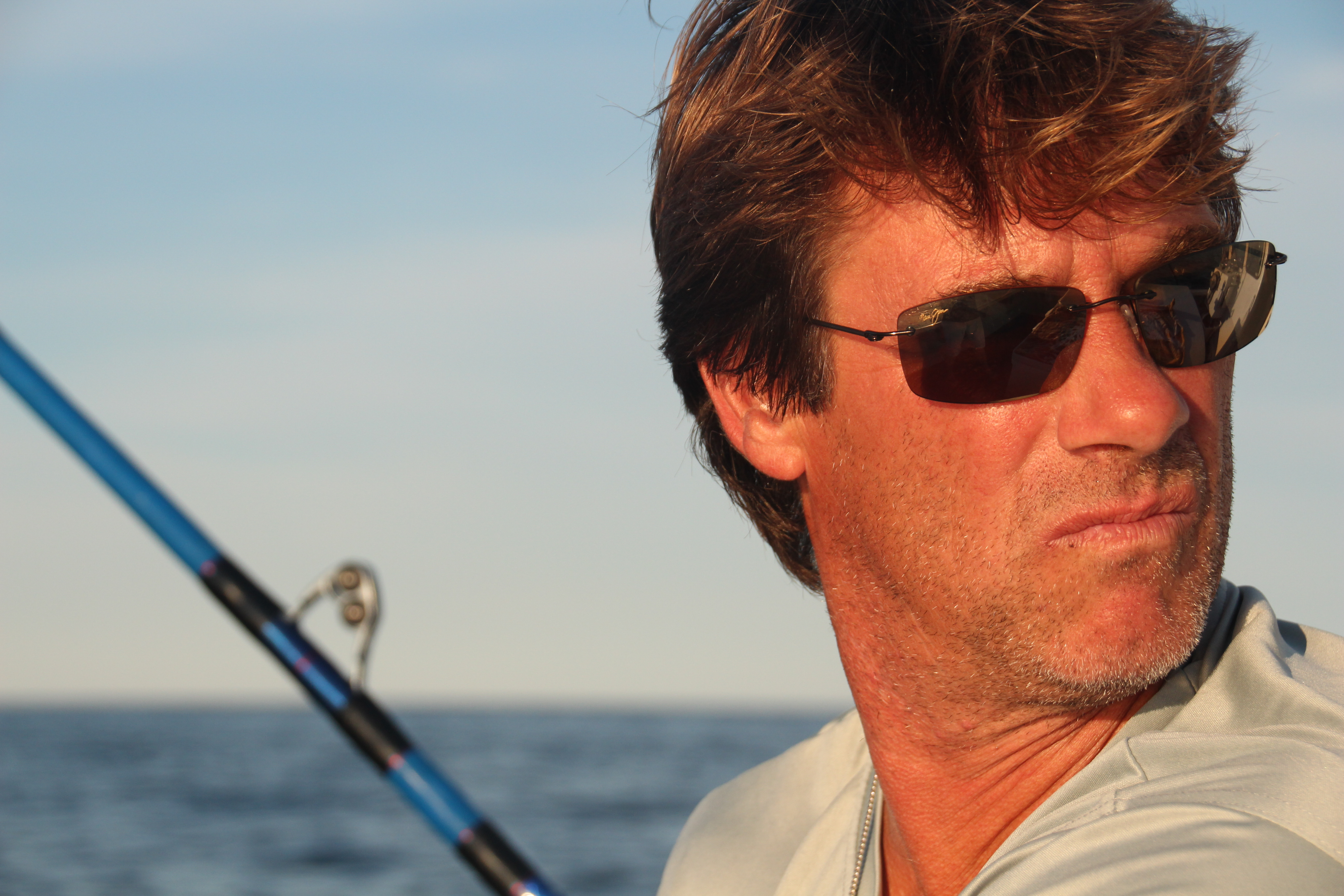
CC You have caught so many fish over the years, but is there are still a rush when you get a tuna to bite?
PH Every time you hook up is like the first time you ever caught a fish. Every time that rod bends or the line takes off, it’s unbelievable the thrill that you get. It’s like a Chinese fire drill with the adrenaline rushing through your body. It’s why, when I hook up, I try to stay very calm so I can think. A lot of people lose their minds and that’s where you can get hurt. These are big fish and doing 50 mph when they hit that bait. You can get hurt so easily. We used to handline these tuna and I’ve seen people wrap their finger and get pulled overboard. I’ve seen people pull tuna in their boat when they’re still alive; the fish are going nuts and have crushed guys.
CC It can be such a dangerous profession. When I went to New England I regret not going to Gloucester and visiting the Memorial to the Gloucester Fisherman statue. Is that a spot where you’ll sometimes go and reflect?
PH I do it all the time. It’s so ironic that you mentioned that because I was just there this morning. My friends from New Jersey came down and we sat there at the monument for about 45 minutes talking about the people who lost their lives and what a nice thing they’ve done to have this memorial for them. People don’t realize that those who did this for a living, they took their lives in their hands every day. I spent a lot of time with my grandfather and learned a lot from him because he took the time to talk to me. My parents couldn’t talk to me as much because they were trying to make a living. And he knew a lot of the guys who lost their lives up down and whole (East) Coast.
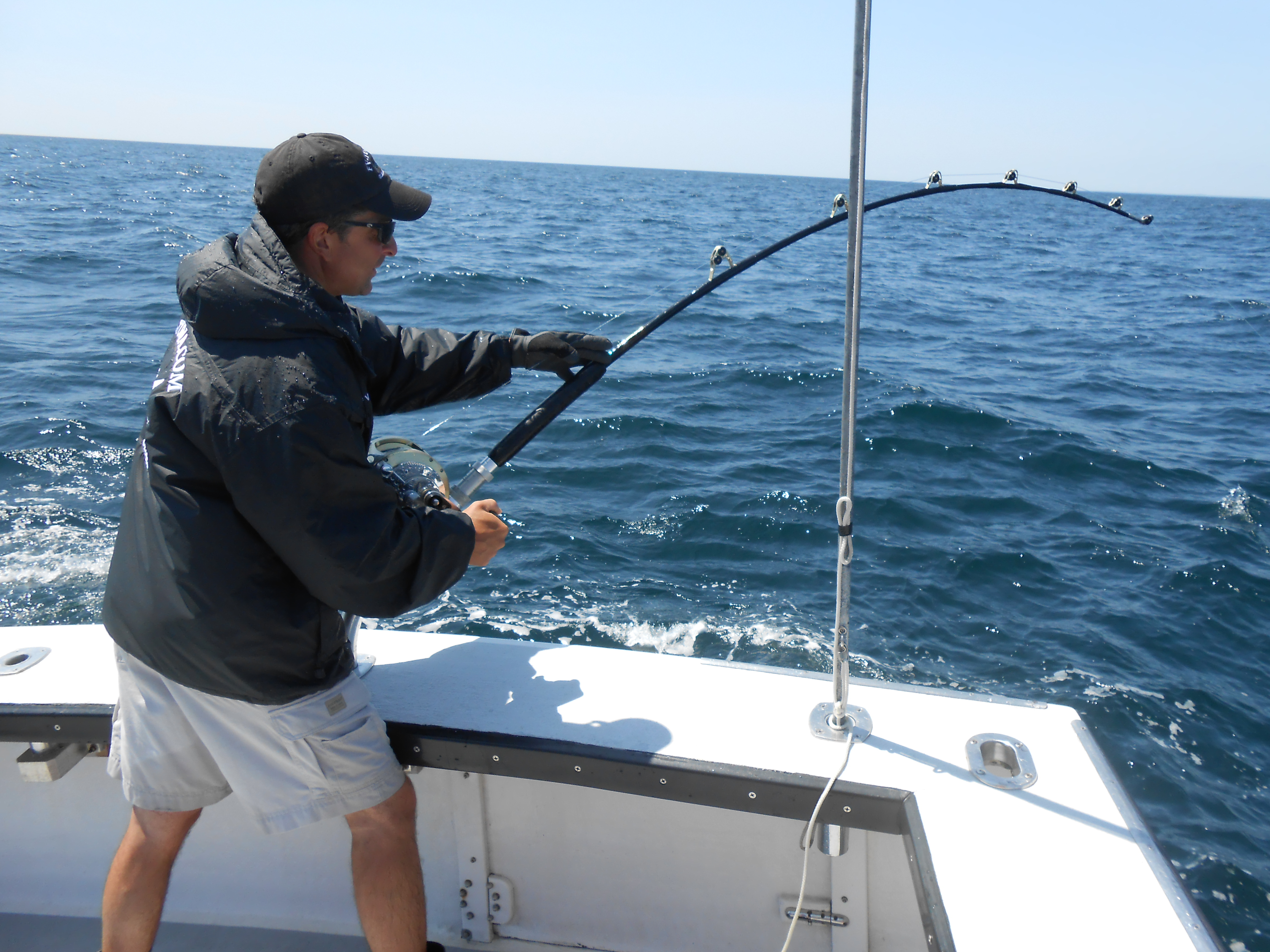
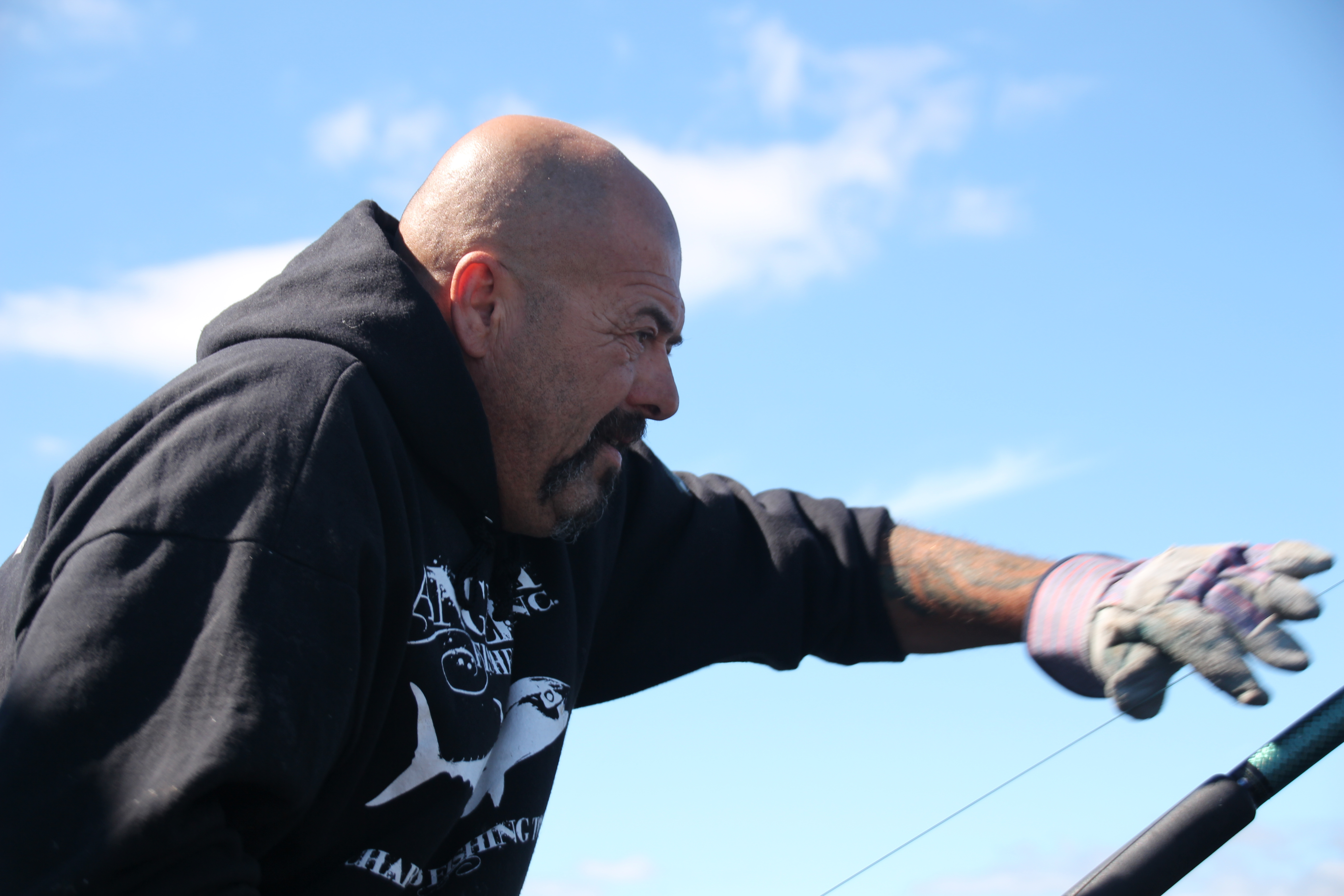
CC So what’s fantastic about Wicked Tuna is watching all of you bicker at each other. And some of these shows’ drama is probably embellished, but I would imagine a lot of your tension is real.
PH It’s actually a little more than what they show because a lot more goes on. The competitiveness is a lot worse than what you guys see on TV. It’s even more cutthroat than what you think. You have to remember that lives are depending on (what gets caught). You’re seeing it more of an entertainment way, but people actually do things that I wouldn’t even want to talk about – really crazy crap. And when you see us all telling each other to go a different way, we really do that [laughs]. Just know that we’re all friends too, but when the bell rings and we go tuna fishing, it’s game on. I’ll be damned if some other guy is going to catch the fish that’s gonna take me and my daughter through the winter. Then again, every one of us would help each other.
CC But it’s something where the competitive juices are always flowing, right?
PH I took my friend from San Diego, who I met the first year I went out there for the Friends of Rollo tournament, and we’ve stayed close. He goes out fishing all the time in California and they catch a lot of yellowtail, yellowfin and some smaller bluefin, and it’s a big deal when someone catches a 100-pound tuna. I took him out here (off Gloucester) for five days last October and we caught four giants. I had him reel in every single one, and he called me a week after he got home and said, “You know what? You ruined me.” “What are you talking about?” He said he couldn’t even think of going after these little yellowfin in California. It’s hard to feel it unless you do it. It’s like a drug.
CC And you fish with rods and reels and not commercial nets.
PH We do it by rod and reel because we follow the (tradition) of catching one fish at a time. Some guys use seine nets – there are only five boats that do that. You herd up a school of tuna, close the net and they beat the hell out of each other. There’sno money in that. I’d rather go out and get one tuna at a time, preserve the stock and not kill the whole school. You want to save all these little fish; that’s why we have a size limit – we can not keep tuna unless 6 feet or larger. That’s a big tuna. But that’s why the stocks have bounced back so tremendously.
The fishing out here is different; if we have an extremely cold winter, the giant blues here like the cold water and they’re such a warm-blooded fish that like the colder water. They can go into 40-degree water and warm their own blood up.
CC Is it a special feeling when you come back with fish on ice?
PH When we get all prepped up for a three- or four-day trip and we come back with a couple tuna on deck, No. 1 is we’ve done our job and we’ve exceeded (expectations), because it’s not an easy thing to do. You’re making a paycheck and supporting your family off it. You know when you’re working and you get that paycheck on a Friday? That’s how we feel coming back – feeling like it’s always Friday! [laughs]
CC How did you get involved out here in California with Friends of Rollo and Tuna Wars?
PH I went to the Fred Hall Show when I was invited out there by Maui Jim (sunglasses). It was the biggest show around and while I was there meeting and greeting, I saw at everyone’s booth there was a sign for “Friends of Rollo – Donate here.” All the companies were (promoting) it. I thought, “What the hell is a Friends of Rollo?” They told me he was an old sea captain from San Diego who took out passengers on long-range trips and he died. And when asked and they said Friends of Rollo takes kids fishing from San Francisco to San Diego, and it’s usually kids who have disabilities. That hit close to home because my daughter (7-year-old Ashley) has low muscle tone. It’s called Prader-Willi Syndrome. She was tube-fed for 11 months and she couldn’t walk or couldn’t eat. Everything had to be done manually to her stomach. She had an operation where they had to cinch her esophagus because she couldn’t swallow. But right now she is wonderful; she thinks every little child has two belly buttons [laughs]. She just can’t do some things that other kids can do, like run. And she’s a smart little girl.
But when I found out it involved all these challenged kids, I said, “I’m in. What do you want me to do? I may as well try to help raise some money for you guys.” While I was at that (Fred Hall Show), we put up a flier to “come on a two-day offshore trip with Paul Hebert.” The donations for the trip went right to the Friends of Rollo and we took 24 people and raised $24,000. And I went out again and took the 100,000th kid fishing on a Friends of Rollo trip. Isn’t that amazing? I didn’t even fish; I just had fun watching everyone else have such a good time. When I was saw what it was about firsthand I called Dave Marciano and said, “Dave, this was the most self-rewarding charity event I’ve ever done in my life.”
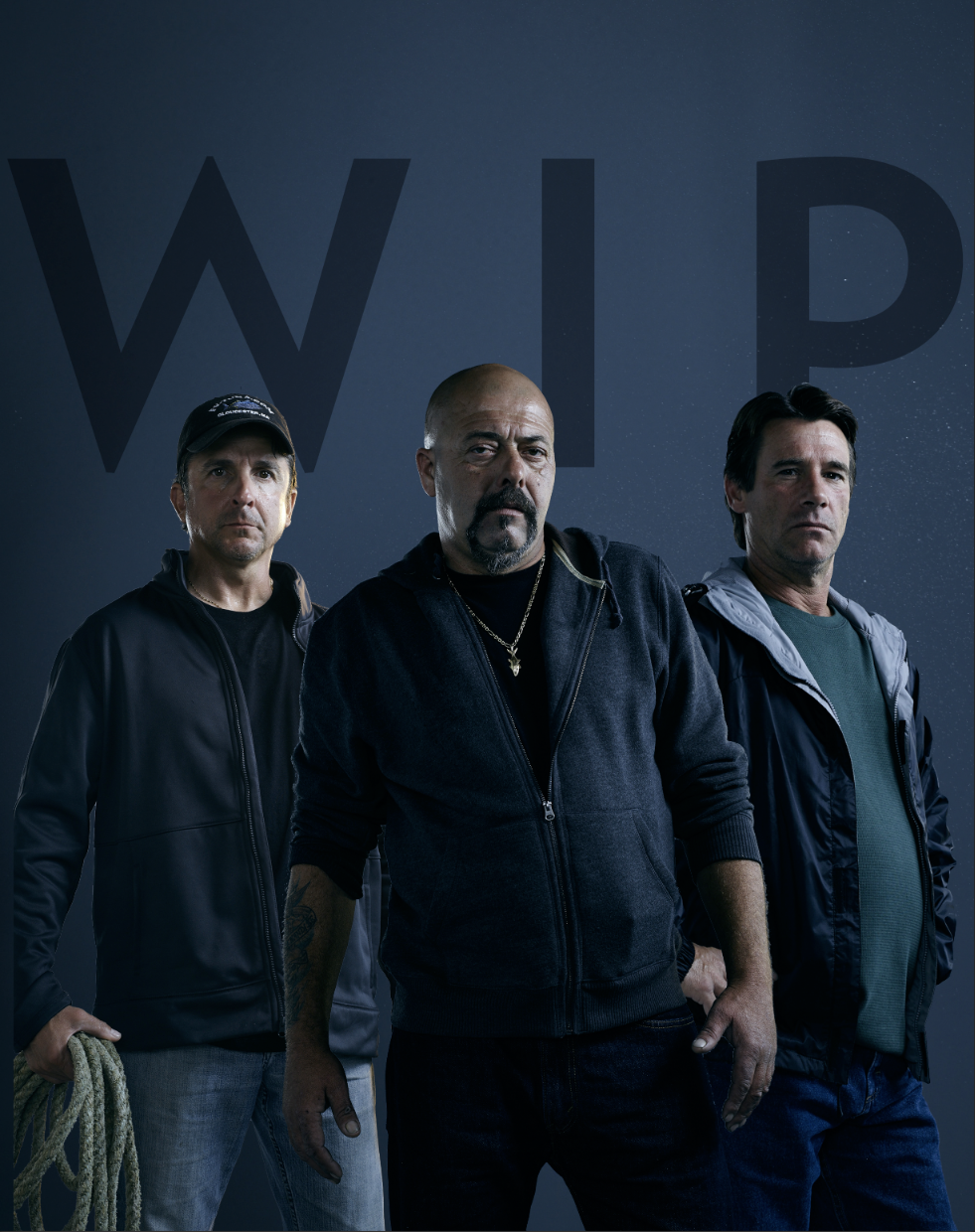
CC So when you go back there next month to join the two Daves, I would imagine that’s going to be competitive among you all again for whose boat catches the most fish.
PH Every single day I think of a way to beat those guys. That’s how competitive it is [laughs]. I won last year and want to win it again. CS
Editor’s notes: New episodes of Wicked Tuna air on Mondays at 9 p.m. Pacific. Go to channel.nationalgeographic.
FRIENDS OF ROLLO TUNA WARS
WHEN June 14-16
WHERE Boats will depart out of Seaforth Landing in San Diego on April 14 and return to port on June 16
DETAILS Three Wicked Tuna captains, Paul Hebert, Dave Marciano and Dave Carraro, will lead teams and skipper boats for this charity event that benefitsFriends of Rollo, a nonprofit organization that takes kids on fishing trips up and down California. Hebert will pilot the local boat, Cortez, with Marciano on theEclipse and Carraro on the Tribute. Anglers can sign up to fish with the captain they want to – as space allows – for a $1,000 donation. Anyone who signs up can attend a reception on June 13 at Bali-Hai on Shelter Island in San Diego.
To sign up and get more information, contact Jim Holden of Friends of Rollo atjim@rollokids.org or by calling (858) 350-5870, extension 103. For more on the event, go to rollokids.org/tuna-wars. CS

